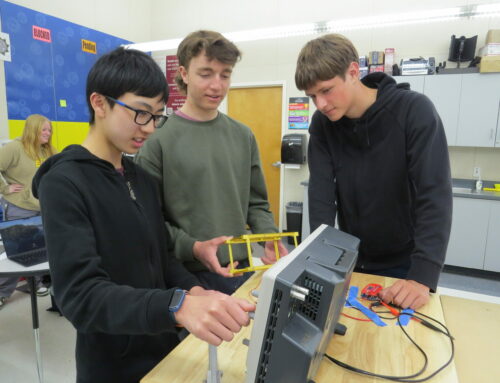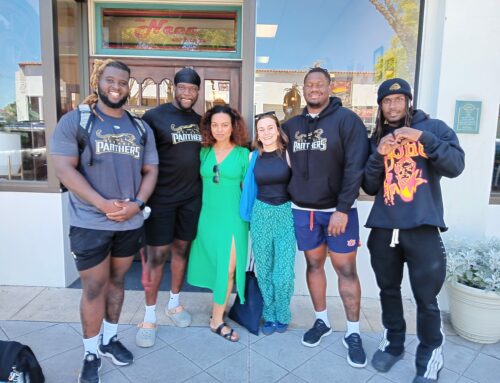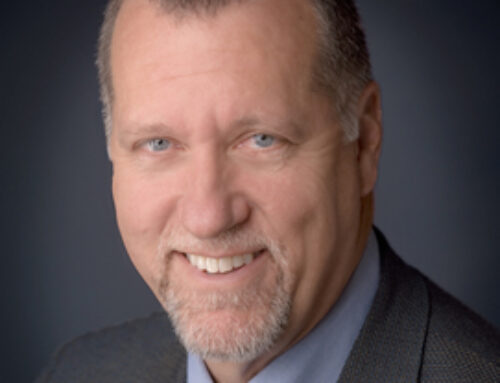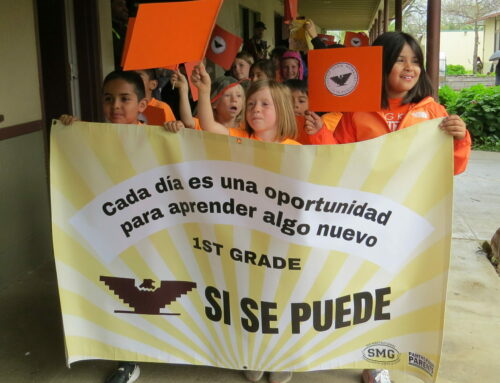Published in the April 27-May 10, 2016 issue of Morgan Hill Life
By Marty Cheek
Live Oak High School geology teacher Susan Paulsen and I recently sat down at GVA Cafe and enjoyed a pleasant couple of hours chatting over ice tea about the radical change in science curriculum now taking place. She explained to me that we’re going to see students in Morgan Hill classrooms and schools across the nation learn science literacy in revolutionary new ways.
Paulsen teaches a special geology class where Live Oak students gain college credits. On field trips to places including Harvey Bear Ranch County Park, the Moss Landing Slough and Pinnacles National Park, they conduct experiments to discover how the Earth formed through the processes of physics, chemistry and biology. During our conversation, I shared briefly with her a model for teaching science (and virtually anything else) that I’ve been thinking about lately. It’s based on the idea believed by many ancient cultures — most notably the Greeks — that all matter on our planet is made of just four basic elements: water, earth, air and fire. (Aristotle came up with a fifth element – “quintessence” – which is the celestial realm of the stars.)
The four elements of learning model work as a metaphor of how the mind processes thoughts and ideas. It starts with the classic element water, a substance that is fluid and dynamic and pervading throughout our planet in three states of matter, most notably liquid in our oceans. Water represents the droplets of data that exists throughout the universe, mixing around in an unceasing swirl of dynamic motion. The “water” of data makes up “the ocean of ignorance,” a sea that is wide and deep beyond belief. It’s truly a humbling feeling to ponder all the data in the universe. Much of it is not very interesting and not necessary for human survival. Perhaps it’s possible to know, say, the shoe size of every single one of the 7.4 billion people on the planet. But it would be a massive waste of brain power, time and energy to try to attempt to gain this knowledge. And in the realm of science, there is still so much that remains to be discovered in the depths of the ocean of ignorance — such as what exactly is that “dark matter” and “dark energy” stuff that makes up about 96 percent of the universe.
The classical element “earth” is the next stage in the learning model. This element makes up the solid and stable soil we can stand upon on what I call “the island of knowledge and wisdom.” Data in the ocean of ignorance is constantly crashing on the shore of this island, entering our brains through the five physical senses of sight, sound, touch, taste and smell and converted into the energy of information. Every second of our lives, information energy is churning into in our brains. Much of it is not useful for more than a few seconds, so it’s filtered out. But some of the more valuable information we might want to store and retrieve later, so we put it into our memories in the form of long-term knowledge.
Knowledge by itself might be interesting as trivia. For example, you might know the famous equation of Albert Einstein’s theory of special relativity E=MC2 and grasp vaguely it has something to do with physics. But when you start to explore the science of this amazing idea and realize Einstein’s equation means all the material stuff in the universe is really highly condensed containers of energy, then it takes E=MC2 to another dimension — understanding. And understanding then allows you to reach the next stage — wisdom — where you can apply that knowledge to make smart decisions that enhance the quality of your life.
The next element in my model is “air,” which is an invisible and nebulous substance. Air takes us to the next level of learning — “the atmosphere of imagination.” Here, we take what we learned on the island of knowledge and wisdom and bring it into a new level of visualization and creative thinking. Think of the word “inspire” which in the literal sense means to breathe in air. It has a metaphorical meaning — to breathe in ideas and thoughts and turn them into something creative such as a painting, a novel, a song, a poem or a new type of technology. If you have an adventurous heart, this realm is a lot of fun to explore. Unfortunately, the education system in America is weak at building in young people the skills of imagining — much to the detriment of our society and our economy.
The learning model’s fourth and final classical element is “fire,” the energy used to create or destroy. This element metaphorically forms“the fire of genius,” the lofty level of original thinking. The ancient Greeks believed every person was born with a genius spirit that guided them in their lives. I like this idea because it means no one is an actual “genius” but we all have the essence of genius hidden deep in everyone of us. In the metaphor, the fire of genius requires the fuel of earth (knowledge and wisdom) and air (imagination) to burn. It takes courage to play with creative fire. Unfortunately, for many people the energy of genius can be a scary thing when they see it in themselves or other people. Very often, a child playing with originality in thinking will have the spark of his or her genius promptly doused by the water of ignorance by a parent, friend or even teacher before it can be fanned into the flames of genius.
I’m excited about the changes we’ll start seeing soon in how we teach science to students in our public schools. On viewing my model of the four elements of science learning, Paulsen described how the old style of teaching simply stopped the students at the shore of information. They received the information, took a test to show they had “learned” the information, and soon after forgot much of it. The fun of learning comes after leaving this low level — when the students start exploring the stages of knowledge, understanding, wisdom, imagination and (for a fortunate few) creative genius.








